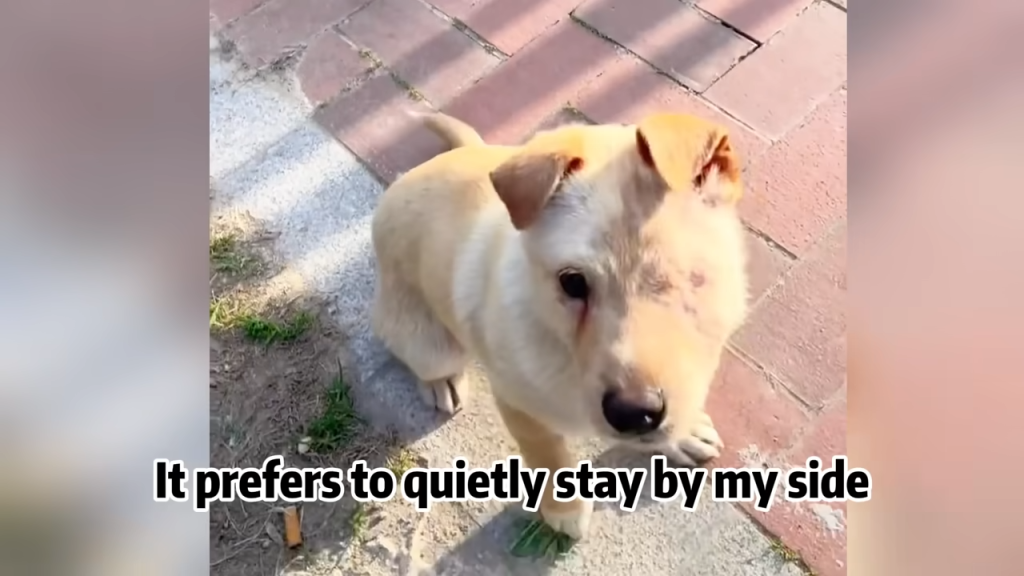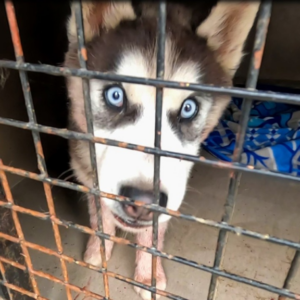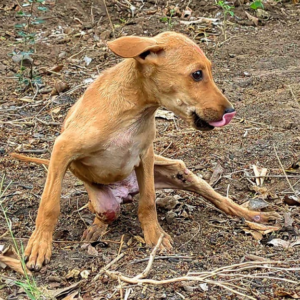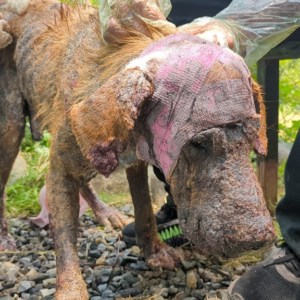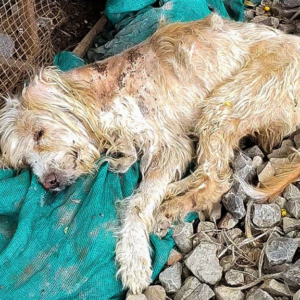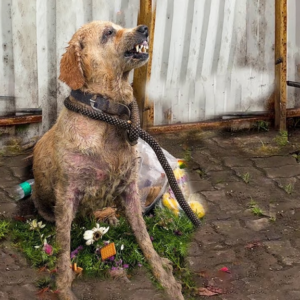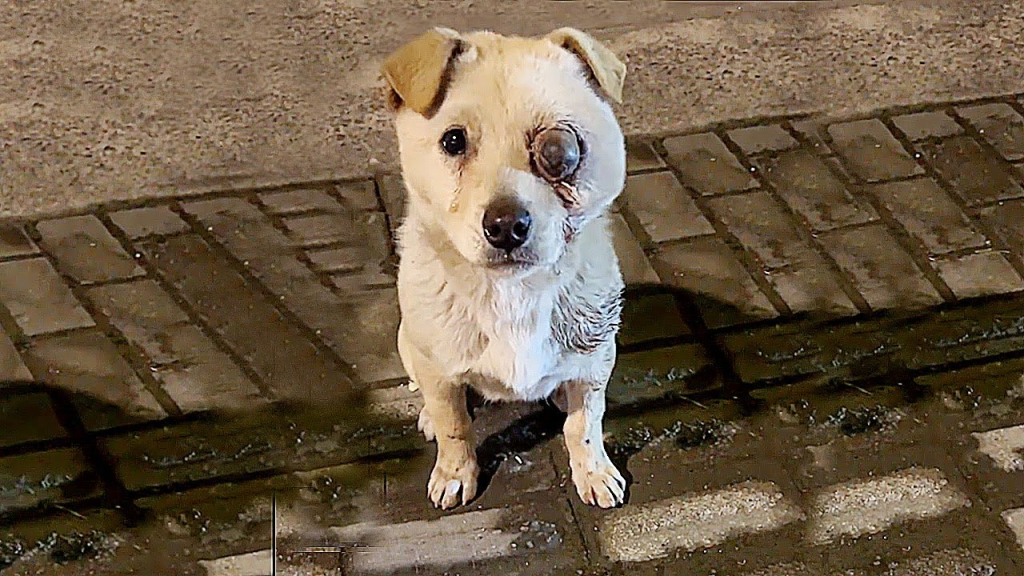
It was an ordinary day when I found myself walking down the quiet streets near my neighborhood. The sun was setting, casting a warm glow across the city, but something unusual caught my attention. I heard the sound of faint, labored breathing, and when I turned, I saw a dog slowly stumbling towards me. Its fur was matted with dirt and blood, and its eyes—wide and bulging—seemed to be pleading for help.
The dog had clearly been in some kind of accident. Its body was battered, with several deep wounds visible on its legs and side. Despite the obvious pain, it kept moving, dragging its injured body closer and closer. I could see the desperation in its eyes. It wasn’t just the pain—it was the silent plea for help that tugged at my heart. The dog didn’t bark or whimper; it simply followed me, its gaze never leaving my face, as if it knew I could help it.
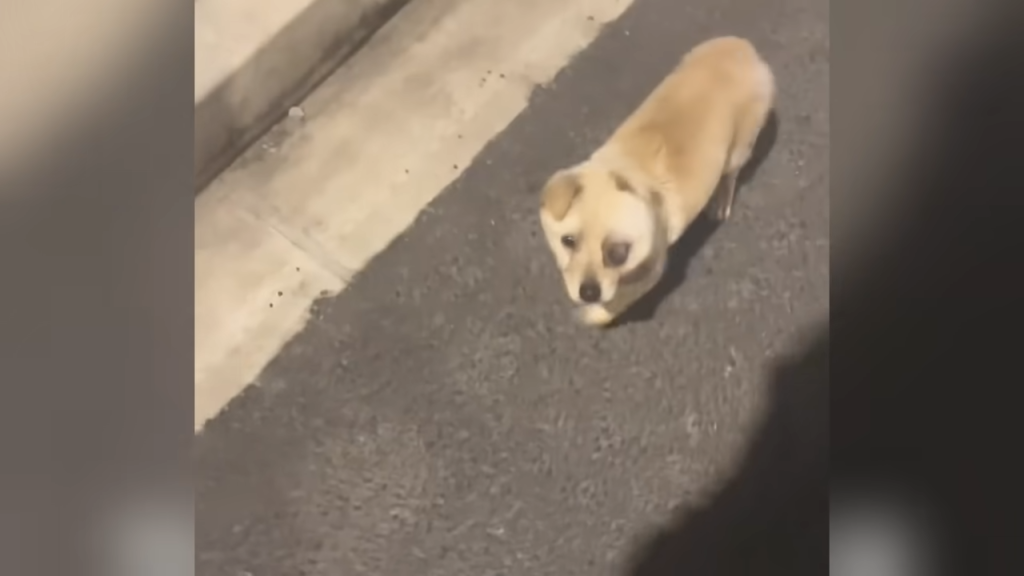
I instinctively stopped and crouched down to get a closer look. The dog’s eyes seemed to bulge even more as it took another faltering step in my direction. I could feel its distress—it wasn’t just lost or scared; it was begging me to intervene. The dog’s movements were shaky, and it was evident that it had been struggling for a while. It had no strength left to run or even stand properly. Still, it kept following me, inch by inch, its gaze filled with hope.
I felt a surge of compassion and guilt. How could I ignore such a clear cry for help? I knew that I couldn’t leave it like this, vulnerable and in pain. Gently, I reached out, trying to coax the dog to sit so I could assess the damage. It hesitated for a moment but then collapsed onto the ground in exhaustion, still watching me with those desperate eyes. The wounds were deep and severe—its side was torn, and blood stained its coat. It was clear that the dog had suffered for far too long without care.
I immediately called animal services and explained the situation. While waiting for help to arrive, I stayed by the dog’s side, offering comfort. The dog didn’t seem to want to be touched too much, but it rested its head against my leg, sensing that I was there to help. It was strange how much trust it had in me, despite its pain and fear. Perhaps it simply didn’t have the strength to go anywhere else.
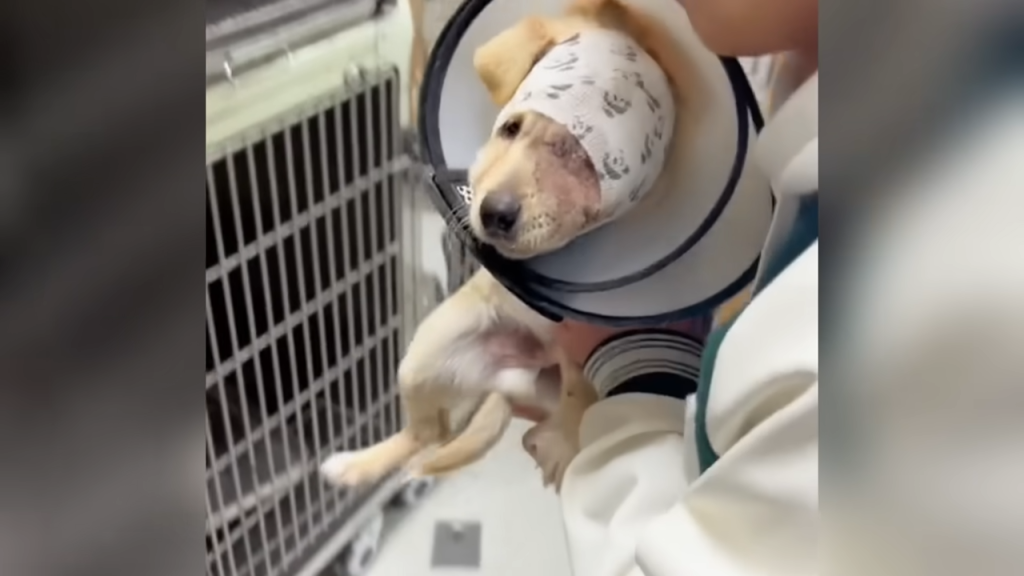
The animal rescue team arrived quickly, and together, we carefully placed the dog in the back of the vehicle. Its eyes, once full of fear and pain, now seemed to soften as the realization set in that help had finally come. I rode with the dog to the clinic, my heart heavy but hopeful. The doctors worked quickly to treat its injuries, and I was told that, despite the severity of the wounds, the dog had a good chance of recovery.
Over the next few weeks, the dog received the care it needed—antibiotics, dressings for the wounds, and a warm place to rest. It gradually regained strength, and its once-frightened eyes now sparkled with a newfound joy. The bond between us grew stronger, and eventually, the dog was able to walk again, though it would carry the scars of its past.
This experience stayed with me as a powerful reminder that sometimes animals don’t have words to ask for help—they simply rely on their eyes to tell us what they need. The dog, once so injured and lost, had found safety, and I had found a loyal companion. It was a bond forged in pain and hope, a reminder that sometimes, the smallest gestures can change a life forever.
